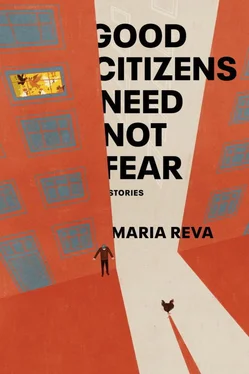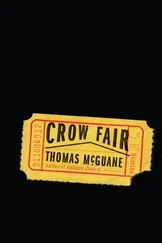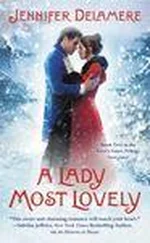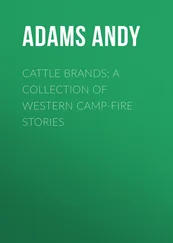According to the director’s classification of infants, the Threes have a minor defect. It may be cosmetic—webbed fingers, a misshapen ear—but when has that helped a person land a job? Even the outwardly normal babies pose a risk. Abandonment is taxing, and there is always the chance of a depressive mother, an alcoholic father lurking in the genes. So the director deems the healthy but abandoned babies Threes, just in case.
Twos are blind and/or deaf. Skin disorders and ambiguous genitalia fit the criteria, too.
Ones simply lie there.
An aerial view of the baby beds looks like this:
[ ] [ ] [ ] [ ] [ ] [ ] [ ]
[ ] [ ] [ ] [ ] [ ] [ ] [ ]
[ ] [ ] [ ] [ ] [ ] [ ] [ ]
This year, the Ones, Twos, and Threes sleeping in their beds look like this:
[3] [3] [2] [3] [2] [3] [3]
[2] [1] [1] [1] [1] [1] [2]
[3] [2] [3] [3] [3] [2] [3]
The director would deny any pattern to the distribution of the babies. If the healthier babies lie next to the great bright windows where they can chatter with the magpies, and next to the doors where the occasional Ministry inspector can see them best, it’s surely a coincidence. Pick any other room, where the older children sleep—though they rarely sleep, not all at once—and try to find a pattern in that jumble.
And anyway, it’s the sanitarki who assign the babies to their beds, not he.
In this particular batch of babies, the loudest voice comes from row three, bed seven. The puzzle pieces of her face hadn’t sealed together in her mother’s womb. A cleft begins at her right nostril, plunges down the upper lip and into the hole of her mouth. A boisterous Three, just on the edge of invalidity, this girl is one of the favorites. She coos and babbles and peekaboos, flirts with the sanitarki, grips their fingers with an iron strength when they peer in at her.
—
At six to ten months, the babies begin to crawl. Hands and knees patter on the vinyl floors. Today the distribution of the crawling babies looks like this:

On the far right, the lone baby: she’s the lively Three. Faster than the others, the girl has slipped out of the baby house. She’s cruising along the wooden picket fence, eyes set on a gap wide enough to squeeze through. Pine trees tower beyond it, beckon her with their syrupy smell. Four pickets to go, three, two… The same sanitarka who found the girl inside the medicine cabinet yesterday, an overturned dustbin the day before, catches up to her now. As the girl sticks her head through the gap—the air feels different on the other side, less dense—she feels her romper tighten around her neck, pull her backward. The pines slide away.
The sanitarka is doubled over, panting. “You’ll be the end of me.” She lets go of the romper. The baby looks up at her and a flutter of giggles escapes her mouth, wins her captor over like it did yesterday and the day before.
A small, secret relief for the overworked attendants: not all the babies learn to crawl. This failure is only natural for those with clubfeet or spinal conditions. And if some of them aren’t let down from their beds, it’s because they’ll never be able to walk anyway. Beds take up most of the space, and there aren’t enough sanitarki eyes to watch over everyone. If all the babies learned to crawl, where would they go?
—
The older children name her Zaya. Little rabbit. Her mouth is a crooked assemblage of teeth and gums. As the teeth grow, they poke through the slit in her lip. At breakfast, half her porridge oozes from her nose.
The name starts with a letter she can’t pronounce, and the other children delight in hearing her try. There are many letters the girl can’t pronounce, because they require both sets of lips and a complete upper jaw.
Whenever a sanitarka goes for a smoke in the courtyard, Zaya follows. Most of the time the woman sits in silence, staring at the wall opposite, taking grateful pulls on her cigarette. On good days she reads a magazine; on the best days she reads aloud to Zaya, who learns to follow the words. Topics covered: newly released books, home remedies, the latest five-year economic plan, hat etiquette.
—
Every New Year’s Eve, the baby house receives a donation from the Transport Workers’ Union. A six-wheel truck sighs to a stop in front of the gates, enveloping the waiting children in a great diesel plume. Grandfather Frost—whom a recently orphaned boy calls “Saint Nicholas” before receiving prompt correction—descends from the passenger side. He wears a tall boyar hat, a long white beard, a blue velvet coat, and felt boots.
Grandfather Frost beams down at the children. “Who’s been good this year?”
The children shrink back, alarmed by the question.
Grandfather Frost recoils, too, unaccustomed to children afraid of the prospect of gifts. He whistles up to the pock-faced man behind the wheel, who wears a plastic crown festooned with a shiny blond braid—Snow Maiden. The bed of the truck lifts, dumps a pile of old tires over the fence. Grandfather Frost uses shears to cut the tires into swans.
“It’s a miracle,” says a sanitarka, and so it is. The children keep silent, watch the miracle unfold. This is how Grandfather Frost does it:

Soon the courtyard is littered with dusty brown swans. The children paint the swans red or blue or yellow. At first Zaya mixes red and yellow in her tin to make a radiant orange, but an experimental dab of blue turns the mixture brown.
When the director of the baby house comes to Zaya’s swan, he says, “That’s a shame. Grandfather Frost gave you three bright colors to choose from.”
Zaya invents an explanation, one the director would find very clever, and would surely repeat to his colleagues at the Ministry, who would find it very clever also—but of the sounds that slosh out of Zaya’s mouth, the director understands none.
So he asks, “Why not just paint the swan yellow?”
—
Every spring, the sanitarki trim the hedges along the building, pull weeds around the tulips. They bleach and starch the curtains, pour ammonia over the floors, shine the doorknobs, wipe the babies down.
And every spring, the Psychological-Medical-Pedagogical Commission of the Ministry of Education arrives in a procession of three cars. Zaya and the other four-year-olds press themselves against the windows of the baby house, watching the procession in a quiet panic. They are about to be redistributed.
The Threes shouldn’t worry. Unless they freeze up during the test, they’ll move on to the children’s house.
The Ones don’t yet know they should worry. They can’t even get out of their beds, and no one can do anything about that now, so they’ll be transferred to the psychoneurological internat.
“What’s at the internat ?” asks a pudgy-cheeked boy, twice caught wearing a dress in the laundry room.
“It’s a delightful place where children run barefoot, pick berries,” says the director, who has popped in for the day. “Communicate with nature, and so on.”
A sanitarka starts to weep.
“Happy tears,” the director explains.
The Twos are the wild cards. Sometimes the Commission sends them to the children’s house, sometimes to the internat.
Читать дальше














